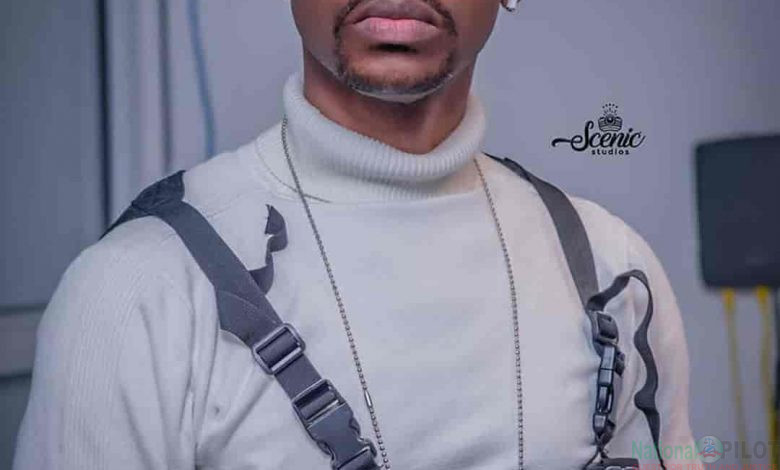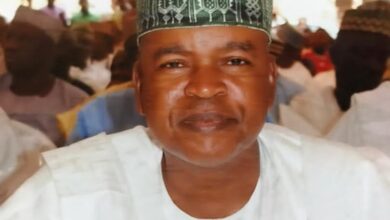

Yoruba movie star, Lateef Adedimeji, is the lead actor in an eponymous non-biological musical film based on the life and times of the late Àpàlà musician, Ayinla Yusuf, popularly known as Ayinla Omowura.
The Àpàlà music superstar was stabbed to death on the head with a beer glass cup by his estranged manager, Bayewu, during a beer parlour brawl on May 6, 1980, at Itoko, Abeokuta. He died from the incident.
Adedimeji, 35, has described the role as a high point of his career. In this interview, he speaks on his career, the Yoruba movie industry, and why working with Tunde Kelani is a dream come true for him including other industry matters.You were brilliant in ‘Ayinla’. What’s more interesting is that you actually looked like the legendary Ayinla Omowura himself. What was it like portraying him in the film?
It was not easy. It was actually very tough because I am not a fan of Apala music. I even hardly listened to Apala music until I got the script. So, when I went through the script and I saw that I’m actually gonna be singing, it was tough.
So, I became a fan and I developed the habit of listening to Apala music. I started listening to all of the songs and there wasn’t any documentation of Ayinla. So all of my characterisation and mannerisms were put together by simply listening to his songs and reading about him.
It was a standard production that required some level of research. I had to go to the area where Ayinla lived, to find our more things about him and all of that. That was how I was able to pull it. The musical part was very tough for me, it was not so easy at all but I’m glad I was able to do it.
How do you feel about being directed by the legendary Tunde Kelani?
It was a dream come true. It makes me feel that when you pray, God truly answers because I’ve always prayed for a ‘waka pass’ (minor role) role in any movie produced by Tunde Kelani. Now, I didn’t just get a part. I got a lead in his movie, not just in anyhow movie but a lead in a movie about a legend.
Can I say that Ayinla is your best movie yet?
I think Ayinla is. If you look at it, I’ve featured in a lot of amazing movies but Ayinla was on another level entirely, in a way apart from others.
Aside from Ayinla, what else are you working on presently?
Something else is coming. Ayinla set me on a level that I do not want to go below, so it’s either I do equivalent or bigger. That’s what I’ve been working on now.
Do you think you’ve been typecast since you’re always given the same type of role?
Not at all, I’m not a stereotyped actor. At first, it was me playing only romantic roles and crying (laughs). At a point in time, I realised that it could get me nailed to a particular role. So, I was like, ‘people have never seen me in a comedy role’ until I started the role of an Igbo man in a movie and people were surprised
Do you think should have managed Baba Ijesha’s rape scandal better?
Of course. It could have been managed better. Things are getting better because most of the time, talking can not do the job or solve the problem. Someone will just have to set the standard and everybody else will want to meet the standard ‘their way.’ That makes us get it right in the industry.
Have you ever turned down a script for any reason?
Yes, recently I turned down a lot of scripts because I felt like they do not convey a good or genuine message. Then what is the essence of doing it? I’ve realised we don’t act in movies for the sake of it.
We need to be deliberate and intentional about the message we want to get across to people. Everybody wants to be an actor or a star, but the profession is beyond you just going to be there. You have to merge the talent with the right things so that you can have it well nurtured and well-tuned.
How do you internalise your movie roles?
I do a lot of sitting down indoors and talking alone and to myself at times. That’s what makes an actor better. Because majorly, a director will have an idea in his head about what he wants. As an actor, when you read the script, you’ll have your idea.
So, you sit down with your director and combine both ideas to produce a blockbuster. That was what Tunde Kelani did to me. After getting the script, he told me his idea of Ayinla and I told him my idea as well.
We were then able to merge both ideas to achieve what you all see and love. That is good communication between the director and the actor. Those are some of the things we need to build on in the Yoruba movie world.
Do you think a better storyline is better than fantastic acting or directing?
You can have a good storyline but you don’t have a good person to bring that vision to life. So I think all three go hand in hand.
What are your thoughts on community theatre because I know that Ayinla was screened in several communities in Ogun State?
Of course, we need more of it. I was molded and brought up that way. I was trained by a non-profit (Community Life Project) where we do community theatre way back. We worked with market women, tailors association, carpenters association, and all of that, passing a message about sexuality issues, HIV/AIDS.
We would go to them and ask them what the problems of their members are. Then we put it to a drama and take it back to them. You know, when you see people talking about it and not just seeing it. You see people practicalise it. That was how I was raised. We lost that, but we can bring it back.
What has been the turning point of your career?
Yeah, Airtel is there, ‘Beauty and the beast’ are there but Ayinla has given my career a major boost.
So your acting fees have shot up?
We hope (laughs) Not that it’s going to increase like that but we just have to get it right and follow the trend.
Can you tell us about any challenging production you almost left halfway?
I’m a very stubborn person when it comes to acting. What has been the most challenging for me was my stage performance which I had about 2 years ago, ‘The Prime Minister’s Son’. I had to be on stage for two hours non-stop, playing 10 characters. It was very challenging for me but I was able to pull that through.
The play was written by a playwright, poet, and senior lecturer in the Department of Theatre and Film Studies, University of Nigeria, Greg Mbajiorgu, and directed by Adeleye Fabusoro but I was able to pull it off. So, I don’t think there’s anything that will be more challenging that I won’t be able to do.
Thoughts on Yomi Fabiyi’s controversial movie ‘Oko Iyabo’?
I didn’t feature in the movie because I’m sure that if they had brought me the script I won’t have accepted it. We, actors, must always remember that we are teachers. As teachers, we would not support anything that does not add any value to society.
Away from all things being said, we’re still trying to see how we can play the issue down and get things right, and someone had to do another thing entirely talking about the same issue. That was actually wrong. So, no sane person would have accepted a role in the movie. For me, it’s a no-no and the rest is history.





